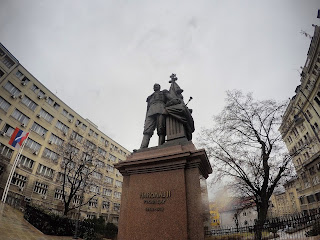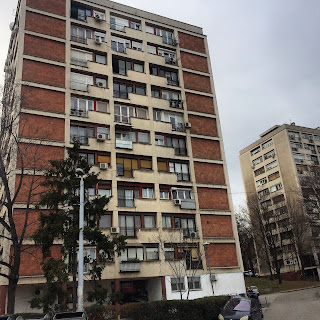A nation often dubbed as the bad guys in the Western media following the brutal conflicts in Bosnia and Kosovo, it (as usual) came as a surprise to many when my friends and I announced that the Serbian capital of Belgrade would be our choice of destination for early 2017.
Having visited Bosnia and heard first-hand about some of the atrocities committed by Serb forces as they strained to hold a rapidly disintegrating Yugoslavia together, I was a little apprehensive (though not judgemental as massacres were routinely carried out on both sides), about the reception we would be greeted with by the Serbs.
I need not have worried.
What awaited us was a city that truly never sleeps, where the locals go out drinking and having a good time until beyond the early hours with not even a second’s thought about what time their alarms will sound in the morning.
The party mentality is said to have derived from Nato’s questionable and highly destructive bombing campaign in the city in the late 1990s, where locals would seize any temporary breaks in the shelling to go out and let their hair down.
Although not the most beautiful of cities (Belgrade is quite grey and has plenty of stereotypical high-rise socialist housing as well as the odd building still lying in ruins) the city’s fortress is well worth a few hours and consists of the old citadel and Kalemegdan Park on the confluence of the River Sava and Danube.
The fortress offers some panoramic views of the city which stretches as far as the eye can see despite having a population of just over a million.
But for me, what really makes the city of Belgrade stand out is the people who live there.
We spent a lot of time around the Republic Square area where there are plentiful bars and restaurants
to keep visitors and locals fed and watered.
The prices offer exceptional value with beer around a pound and a tasty main meal costing under £4, and that gets even cheaper if you head away from the centre of town.
With the exception of the odd miserable taxi driver, everyone greeted us with a friendly smile and quick chat and we enjoyed nights spent drinking at a Serbian folk club and in local bars and clubs with our newly-made friends.
Our hostel (Hostel Bongo) was both spotless and convenient, just a couple of minutes away from Republic Square and the team of staff were always on hand to guide us.
The train journey out of the city and towards the border town of Vrsac was also fascinating, seeing civilisation gradually slip away towards a more traditional and rural way of life.
I’m not sure whether or not it’s a reputation that stems from past conflicts that stops English people heading to the former administrative capital of Yugoslavia or a fear of the unknown, but with such exceptional value and a population of people who are genuinely happy to see you and show off their city, I’d be very surprised if Belgrade doesn’t begin to feature on the radar of more Brits.
Just make sure you check out the Balkan special cevapi (grilled mincemeat) and watch out for the local Rakija, a fruit brandy style drink which will knock you for six if you’re not careful.








No comments:
Post a Comment